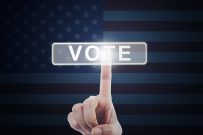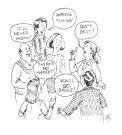All politics is not local, but it should be.
Dylan Pahman
7
articles
by
Dylan Pahman.
Dec 11, 2019
If the principle of national sovereignty is incompatible with the policies of economic nationalism, national conservatives have a problem.
Dylan Pahman is a research fellow at the Acton Institute for the Study of Religion & Liberty, where he serves as executive editor of the Journal of Markets & Morality. He is the author of Foundations of a Free & Virtuous Society (2017). Follow him on Twitter: @DylanPahman.





